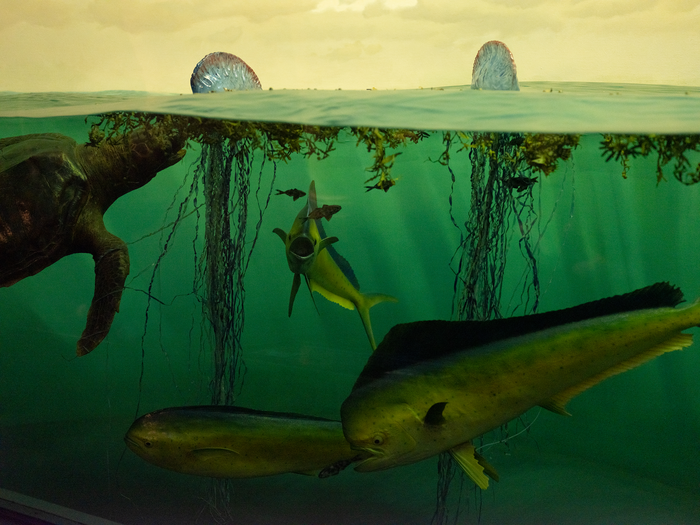Marine life ‘on track for mass extinction if global warming goes unchecked’
Tropical waters will likely experience greatest loss of biodiversity, researchers warn. Emily Atkinson reports

Marine biodiversity could be on track to plummet to levels not seen since the extinction of the dinosaurs, researchers have warned.
A study by Princeton University found that the continued warming of the world’s oceans due to greenhouse gas emissions may initiate a mass extinction of marine life.
The authors of the study, published in the journal Science, modelled future marine biodiversity under different projected climate scenarios.
If the world fails to clamp down on harmful emissions, species losses from warming and oxygen depletion alone could mirror the substantial impact humans already have on marine biodiversity by around 2100, the researchers have said.
Tropical waters would likely experience the greatest loss of biodiversity, while polar species are at the highest risk of extinction.
Senior author Curtis Deutsch, professor of geosciences and the High Meadows Environmental Institute at Princeton, said: “Aggressive and rapid reductions in greenhouse gas emissions are critical for avoiding a major mass extinction of ocean species.”
But the researchers believe that reversing greenhouse gas emissions could reduce the risk of extinction by more than 70 per cent.
“The silver lining is that the future isn’t written in stone,” said first author Justin Penn, a postdoctoral research associate in the department of geosciences.
“The extinction magnitude that we found depends strongly on how much carbon dioxide we emit moving forward. There’s still enough time to change the trajectory of CO2 emissions and prevent the magnitude of warming that would cause this mass extinction.”
Prof Deutsch and Mr Penn set the study in motion while they were both at the University of Washington. The pair combined existing physiological data on marine species with models of climate change to predict how changes in habitat conditions will affect the survival of sea animals around the globe over the next few centuries.
They compared their model to the size of past mass extinctions captured in the fossil record, building on their earlier work that linked the geographic pattern of the End-Permian Extinction more than 250 million years ago to underlying drivers, namely climate warming and oxygen loss from the oceans.
The researchers found that their model projecting future marine biodiversity, the fossil record of the End-Permian Extinction, and the distribution of species that we see now follow a similar pattern. As ocean temperatures increase and oxygen availability drops, there is a marked drop in the abundance of marine life.
Two key factors the authors say will change as the climate warms as a result of human activity are water temperature and the availability of oxygen.
Warmer water poses a series of risk factors to marine life adapted for cooler climates. It also holds less oxygen than cooler water, which leads to more lethargic ocean circulation, in turn reducing the oxygen supply.
The study also points out that species’ metabolic rates increase with water temperature, meaning the demand for oxygen rises as the supply decreases.
“Once oxygen supply falls short of what species need, we expect to see substantial species losses,” Mr Penn continued.
Although marine animals have the physiological means to allow them to adapt to environmental changes, these mechanisms can only help up to a point.
Polar species are more likely to go globally extinct if climate warming occurs because they will have no suitable habitats to move to, the researchers said, while tropical marine species will likely fare better because they have traits that allow them to cope with the warm, low-oxygen waters of the tropics.
As the water temperature increases north and south of the tropics, these species may be able to migrate to newly suitable habitats.
But the study warns that the equatorial ocean is already so warm and low in oxygen that further increases in temperature – and an accompanying decrease in oxygen – might make it uninhabitable for many species.
The authors’ key concern is that climate change will make large swathes of the ocean uninhabitable.
To quantify the relative importance of climate in driving extinctions, the pair compared future extinction risks from climate warming to data from the International Union for Conservation of Nature on current threats to various marine animals.
Their findings revealed that climate change currently affects 45 per cent of the marine species at risk of extinction – but the researchers added that is only the fifth-most important stressor after overfishing, transportation, urban development and pollution.
Mr Penn said that climate change could soon eclipse all of these stressors in importance, adding: “Extreme warming would lead to climate-driven extinctions that, near the end of the century, will rival all current human stressors combined.”






Join our commenting forum
Join thought-provoking conversations, follow other Independent readers and see their replies
Comments